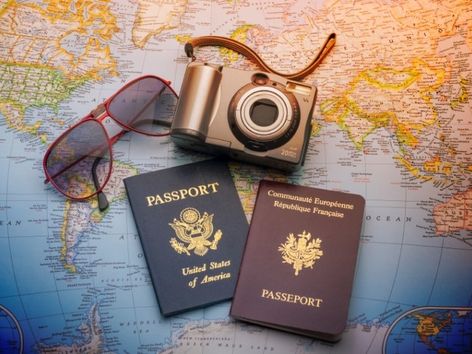Expats return home earlier than planned: how to avoid common mistakes?

Migration to another country gives you the opportunity to get acquainted with a completely new culture and lifestyle, as well as career prospects. Find out more about the most common problems that can cause expats to return home prematurely and how to solve them calmly
At first glance, moving to a new country is an exciting journey that provides fantastic experiences, introduces you to new people and places, and leaves pleasant memories that will last a lifetime. However, according to statistics, almost every third expat returns to the country of birth earlier than planned. The reasons are definitely different for everyone, but there are a few of the most common ones that make foreigners repatriate earlier.
What are these reasons and what mistakes should be avoided in order not to end up at home before the visa expires? Details in our material.
8 problems that can cause expats to return home prematurely and ways to solve them
- Absence of family and friends. Feeling lonely is very common among expats. Often, at a certain stage, a person is faced with the fact that his relatives understand him less and less, and the few local friends he manages to find have a different mentality and cannot always help a foreigner. It is difficult to replace the support of family, so life away from them often becomes unbearable. You may also want your children to grow up with grandparents or other relatives, which will facilitate an early return home.
How to decide? Try to keep in touch with relatives by means of video communication, communicate more often in messengers. If possible, invite loved ones to visit you or visit relatives yourself on holidays.
- Language barriers. If you are not fluent in the language of the destination country, it may be difficult for you to build a career, communicate with new friends or simply go about your life.
How to decide? Be sure to start learning the language of the country to which you plan to move immediately after you make the decision to migrate. Even if, for example, knowing only English will be enough for your work, it will be difficult to go to the store or meet someone outside the office without the language.
- Health concerns. The lack of adequate medical care in the host country may encourage expats to return home to receive the necessary diagnosis and adequate level of treatment. Also, an emergency or a serious diagnosis, if you don't have a policy, can leave you with a choice between the exorbitant costs of treatment in an international hospital or returning home, where medical care will be heavily subsidized or free.
How to decide? You can avoid this problem by first taking out an international health insurance policy adapted to your requirements.
- Financial difficulties. First, the move itself is quite expensive. Also, a fairly common mistake is underestimating the cost of living in a new country. Some expats pay attention to cheap local food when analyzing costs, but after moving they consume imported products that cost much more. Others begin to think in local currency, thereby losing their sense of true value.
In many countries, foreigners face difficulties in furnishing rented accommodation. Apartments are often rented almost empty and expats have to buy furniture and appliances on their own. Given the need to make a deposit several months in advance, this can become a significant cost item. Financial instability may force an expat to return home earlier than expected.
How to decide? Before moving, study the cost of living in the country in detail, analyze your level of projected expenses and the salary you will receive. It is better to make a financial plan and stick to it in the first months.
Additionally, collect a certain amount of savings that will come in handy in an emergency.
- Learning problems in children. After moving, it can be difficult for a child to adapt to a new school, find friends in the team, overcome language barriers and learn material well. To protect children from excessive stress, parents choose to study in international schools. However, courses here are usually very expensive. School fees can easily exceed $25,000 a year per child, and international students often have to pay international fees, which are even more burdensome.
How to decide? Make savings for your child's education in advance or negotiate with your employer to reimburse your children's education costs.
A psychologist's consultation will help to overcome the child's emotional difficulties.
Also, when planning a move, send your child to language courses so that upon arrival in the country of destination, he already has a certain knowledge base.
- Unfunded pension. Often, working abroad can be the reason for reducing the pension or its level will not be enough for your life. Such a prospect scares expats and can be a reason for premature return.
How to decide? Taking control of your own retirement fund is something we all need to do in the 21st century. It's important to do a detailed analysis of how much money you need to fund your dream retirement and make sure you're saving enough each month.
It is also possible to continue paying social security contributions in the country of birth so that deductions to the fund do not stop.
- Difficulties in processing documents. Problems with documents, difficulties in extending a residence permit or peculiarities of the taxation system often do not allow an expat to stay in a new country for a long time. Sometimes this can lead to premature repatriation, so when choosing a country to move to, it is important to study its legal requirements in detail.
How to decide? Before you leave your home country, make sure you take care of all your documents, such as valid passports, visas and work permits. Don't forget to check the tax rules and requirements as well. The better you prepare, the more ready you will be to meet your new life abroad as an expat.
Find out the rules for entering and staying in any country in the world on the Visit World portal. USA, Great Britain, China or Australia - a list of documents for traveling to any country in the world in one place.
- Emotional burnout. One of the difficulties faced by workers working abroad is "expat burnout". The reasons can be different: challenges at work, difficulties at home, loneliness, relationship problems, etc.
How to decide? If you realize that you are tired, it is better to take a vacation, visit the sights of a new country, try to understand the culture and get to know the local population better. The support of relatives or the consultation of a specialist will also be important.
Moving to a new country can be a new chapter in your life and career, but it is important to prepare for all possible risks so that you do not go home before the end of the contract.
Daria Rogova, Head of Insurance at Visit World
To move, travel or work safely in a new country, you will need travel insurance. You can apply for an extended policy on our website here.
Products from Visit World for a comfortable trip:
Travel guide for 200 countries;
Legal advice from a local specialist on visa and migration issues;
Travel insurance around the world (please select the country of interest and citizenship to receive services);
Medical insurance all over the world.
Recommended articles
3 min
Expats
Moving to EU countries always raises a lot of questions, especially when it comes to the rules for obtaining a residence permit. France, Germany, Italy, the Netherlands and Spain: these countries are in the focus of attention of those planning to move to the EU. Find out more about the process of obtaining a residence permit in these countries, including requirements, deadlines, procedures and costs
29 Jan. 2024
More details2 min
Work
Highly skilled professional visa in Japan (HSP) 2025: conditions, points, documents
The Japanese government has a highly skilled foreign professional entry system to attract talent to the country. The Japanese visa for highly skilled professionals is issued on a points system to foreigners who meet certain criteria. Find out how to get a Japanese visa for highly skilled professionals in 2025: updated requirements, points system, list of documents and tips for processing
12 Jun. 2025
More details2 min
Education
Studying in Japan in 2025: A Detailed Guide for International Students
Studying in Japan is becoming increasingly attractive to international students. The country offers high quality education and is known for its innovation, cultural richness and hospitality. However, moving to another country to study can be a complex process that requires detailed planning and preparation. Find out more about how to study in Japan in 2025
06 Feb. 2025
More details2 min
Travels
The places you won't be able to visit in 2024
This year, many travellers have tried to make up for lost time after the pandemic by visiting Europe's most iconic cities and America's national parks in a form of "revenge travel". However, the world has undergone significant changes since the onset of covid19. Many businesses have closed and some tourist attractions have become inaccessible. Find out more about which places remain inaccessible in 2024
31 Jan. 2024
More detailsAll materials and articles are owned by VisitWorld.Today and are protected by international intellectual property regulations. When using materials, approval from VisitWorld.Today is required.
